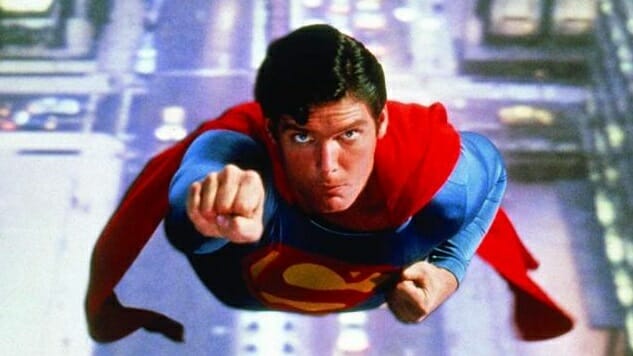Superman: The Original Superhero Movie Isn’t Really a Superhero Movie

1978’s Superman was the original modern superhero movie, bringing a comic book superhero back to the big screen for the first time since the heyday of the film serial in the 1940s. (The Batman TV series did have a film spin-off in 1966, but it basically just feels like an extended episode of the show.) Never before had a superhero movie had such a massive budget to work with (it was the most expensive film ever made at the time) or featured cutting edge special effects. It reestablished comics as a lucrative source of ideas for Hollywood, and is a direct precursor to every superhero movie that has followed in its wake. And, watching it again for the first time in years through the new 4K UHD edition released by Warner Brothers, it’s pretty clear it’s not really a superhero movie at all.
Befitting its 1970s origins, Superman is essentially a disaster film. This was the decade where movies like Airport and The Towering Inferno dominated the box office, and although that fad had already slowed down by 1978, Superman is squarely indebted to it. Christopher Reeve’s Superman barely fights any crime—there’s a single montage of him busting thieves and robbers, and it weirdly ends with a now-unacceptable joke about a child getting smacked (off-screen) for “lying” about Superman. Most of the movie focuses on establishing Superman’s personal life—his birth on Krypton, his childhood and teen years in Kansas, his appearance as Clark Kent in Metropolis, and his burgeoning romance with Lois Lane (Margot Kidder), where his two personas make up two sides of a love triangle—so that we’ll understand him as a person and care about the characters he cares about once things go awry. The movie’s too-long climax is pure disaster turf, with Superman saving California from an earthquake engineered by Lex Luthor (Gene Hackman). It runs through a litany of backlot studio tour special effects set pieces—explosions, collapsing dams, a train speeding towards a bridge that no longer exists—and shows us how Superman saves the day in every situation. It’s like watching a compilation of different ‘70s disaster flicks, but with Superman miraculously appearing in every one.
A young viewer today probably wouldn’t know what to make of this movie. It’s dated in a way that Tim Burton’s first Batman movie, which came out just 11 years later, isn’t, and that’s why Batman should probably get the credit for being the first modern superhero movie. Superman is its own weird thing, and although that might sound like a criticism, it’s actually a major reason why the movie holds up so well today. It’s also a direct result of the very nature of Superman as a character.
-

-

-

-

-

-

-

-

-

-

-

-

-

-

-

-

-

-

-

-

-

-

-

-

-

-

-

-

-

-

-

-

-

-

-

-

-

-

-

-








































